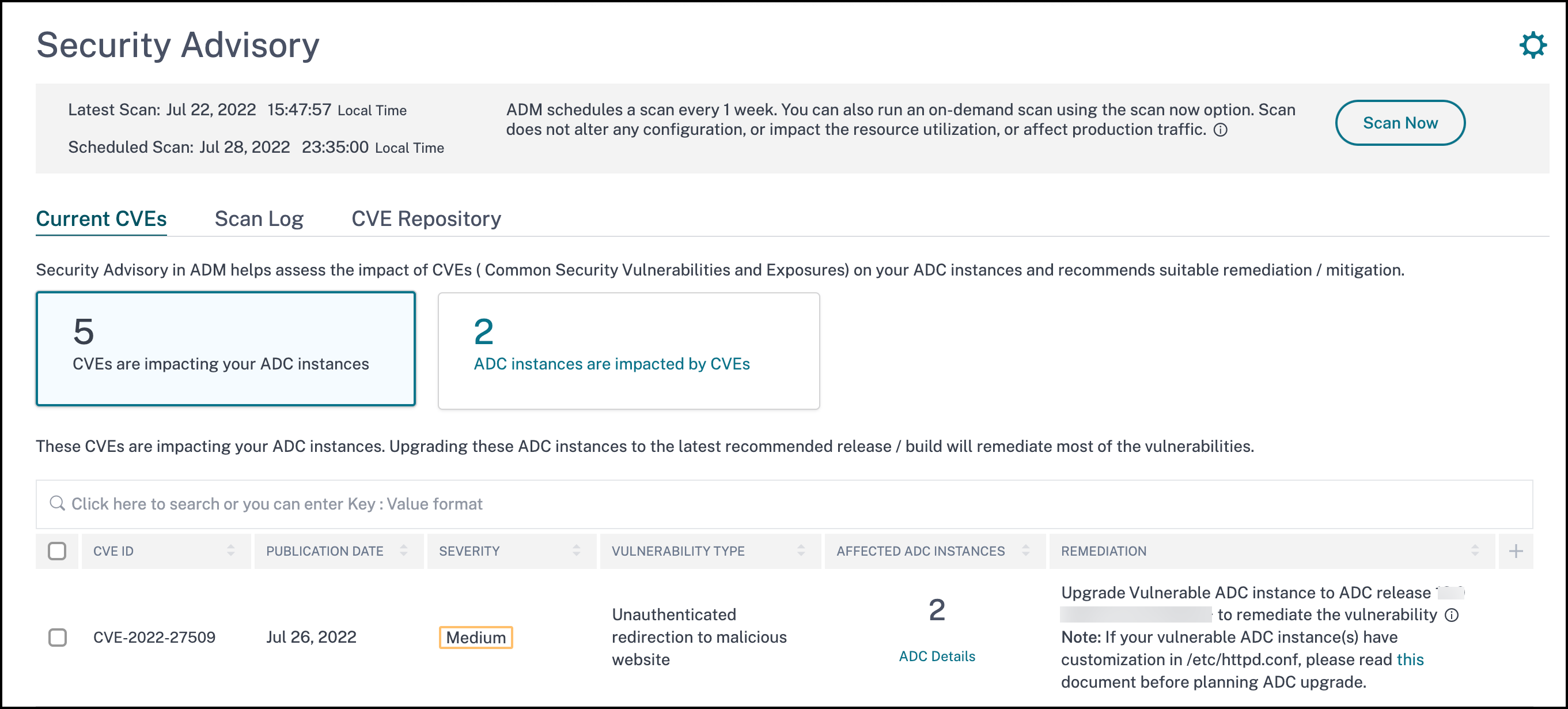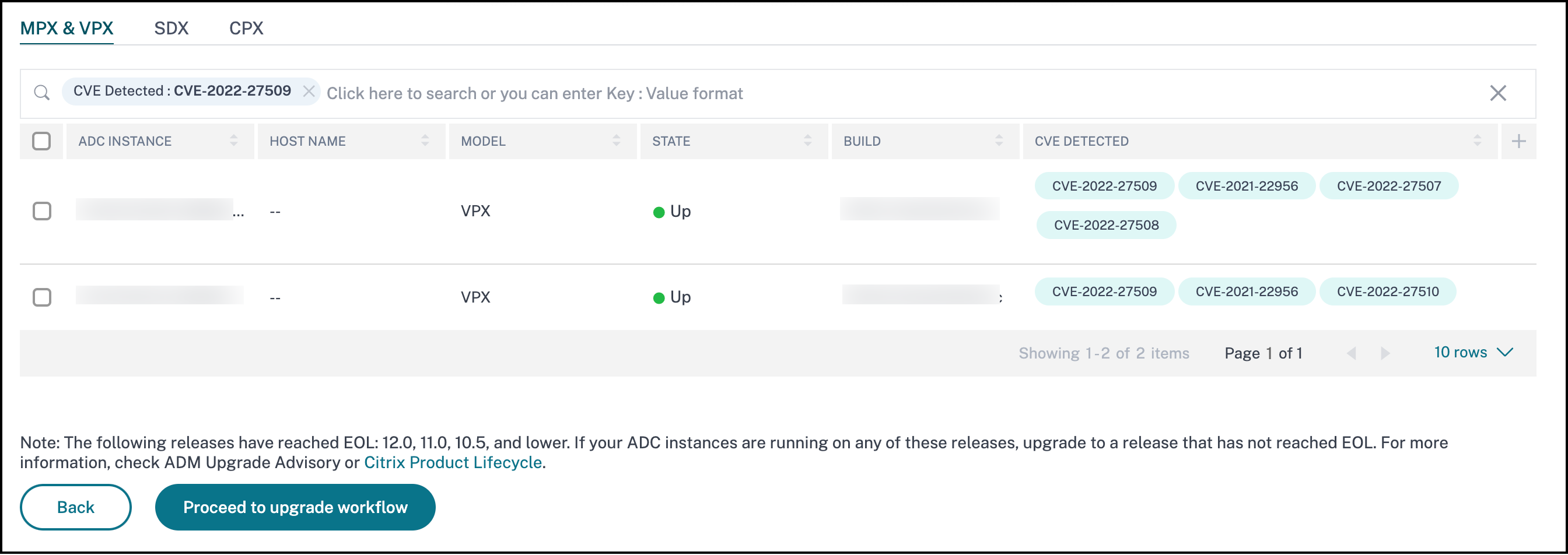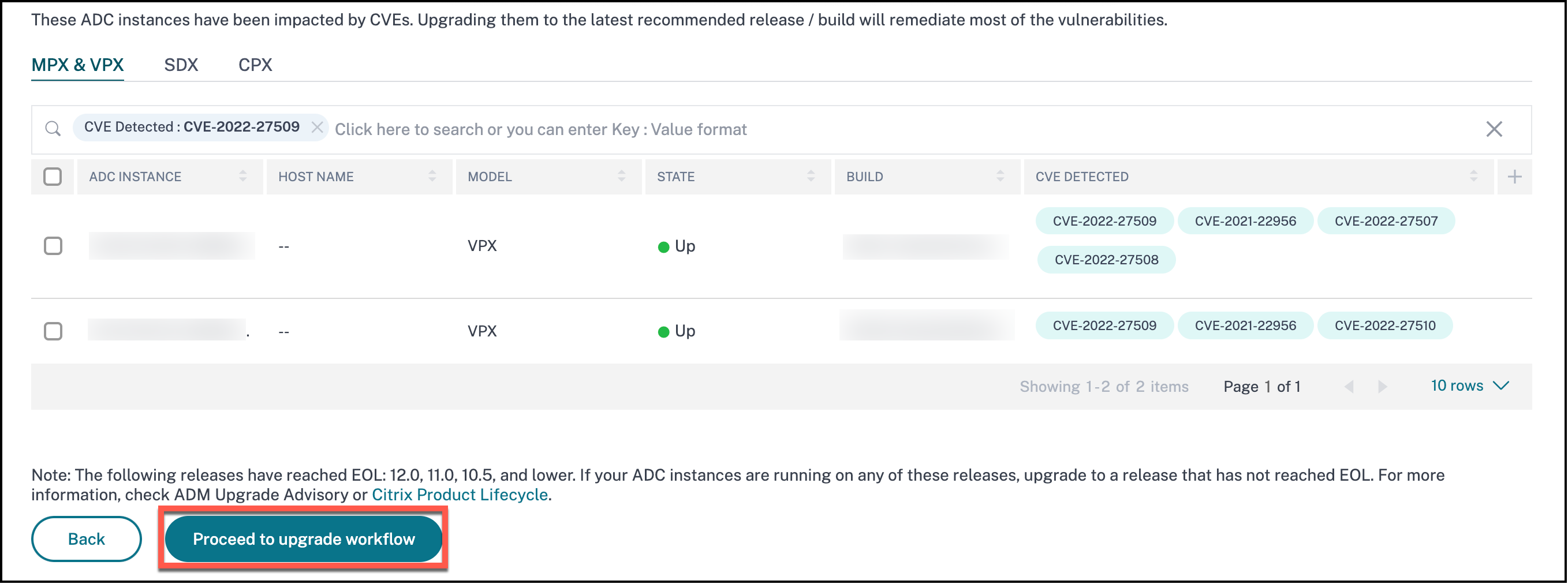-
Low-touch onboarding of NetScaler instances using Console Advisory Connect
-
-
Remediate vulnerabilities for CVE-2021-22927 and CVE-2021-22920
-
Identify and remediate vulnerabilities for CVE-2022-27509
This content has been machine translated dynamically.
Dieser Inhalt ist eine maschinelle Übersetzung, die dynamisch erstellt wurde. (Haftungsausschluss)
Cet article a été traduit automatiquement de manière dynamique. (Clause de non responsabilité)
Este artículo lo ha traducido una máquina de forma dinámica. (Aviso legal)
此内容已经过机器动态翻译。 放弃
このコンテンツは動的に機械翻訳されています。免責事項
이 콘텐츠는 동적으로 기계 번역되었습니다. 책임 부인
Este texto foi traduzido automaticamente. (Aviso legal)
Questo contenuto è stato tradotto dinamicamente con traduzione automatica.(Esclusione di responsabilità))
This article has been machine translated.
Dieser Artikel wurde maschinell übersetzt. (Haftungsausschluss)
Ce article a été traduit automatiquement. (Clause de non responsabilité)
Este artículo ha sido traducido automáticamente. (Aviso legal)
この記事は機械翻訳されています.免責事項
이 기사는 기계 번역되었습니다.책임 부인
Este artigo foi traduzido automaticamente.(Aviso legal)
这篇文章已经过机器翻译.放弃
Questo articolo è stato tradotto automaticamente.(Esclusione di responsabilità))
Translation failed!
Identify and remediate vulnerabilities for CVE-2022-27509
In the NetScaler Console security advisory dashboard, under Current CVEs <number of> NetScaler instances are impacted by CVEs, you can see all the instances vulnerable due to CVE-2022-27509. To check the details of the instances impacted by the CVEs, select CVE-2022-27509 and click View Affected Instances.

Note
To understand the reason for NetScaler vulnerability, download the CSV report in Scan logs tab in Security Advisory.
The <number of> NetScaler instances impacted by CVEs window appears. In the following screen capture, you can see the count and details of the NetScaler instances impacted by CVE-2022-27509.

For more information about the security advisory dashboard see, Security Advisory.
Note
It might take a couple of hours for the security advisory system scan to conclude and reflect the impact of CVE-2022-27509 in the security advisory module. To see the impact sooner, start an on-demand scan by clicking Scan-Now.
Identify CVE-2022-27509 impacted instances
CVE-2022-27509 requires a combination of custom scan and version scan. As part of the custom scan, the NetScaler Console connects with the managed NetScaler instance and pushes a script to the instance. The script runs on the NetScaler instance and determines if the instance is vulnerable. This script runs every time your scheduled or on-demand scan runs.
After the scan is completed, the script is deleted from the NetScaler instance.
You can also opt out of these Security Advisory Custom scans. For more information on Custom Scan Settings and opting out of custom scans, see the Configure Custom Scan settings section on the Security Advisory page.
Remediate CVE-2022-27509
For CVE-2022-27509 impacted NetScaler instances, the remediation is a single step process and you need to upgrade the vulnerable NetScaler instances to a release and build that has the fix. In the GUI, under Current CVEs > NetScaler instances are impacted by CVEs, you can see the step to remediate.
Under Current CVEs> NetScaler instances impacted by CVEs, you see the following workflow for this single step remediation process, which is Proceed to upgrade workflow.
To upgrade the vulnerable instances, select the instances and click Proceed to upgrade workflow. The upgrade workflow opens with the vulnerable NetScaler instances already populated.
IMPORTANT
If your vulnerable NetScaler instances have the /etc/httpd.conf file copied to the /nsconfig directory, see Upgrade considerations for customized NetScaler configurations before planning NetScaler upgrade.
For more information on how to use NetScaler Console to upgrade NetScaler instances, see Create a NetScaler upgrade job.

Share
Share
This Preview product documentation is Cloud Software Group Confidential.
You agree to hold this documentation confidential pursuant to the terms of your Cloud Software Group Beta/Tech Preview Agreement.
The development, release and timing of any features or functionality described in the Preview documentation remains at our sole discretion and are subject to change without notice or consultation.
The documentation is for informational purposes only and is not a commitment, promise or legal obligation to deliver any material, code or functionality and should not be relied upon in making Cloud Software Group product purchase decisions.
If you do not agree, select I DO NOT AGREE to exit.